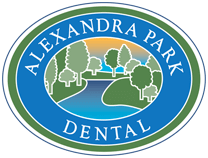Emergency vs. Routine Dental Care: Your Quick Guide
When it comes to dental care, most of us are familiar with the routine check-ups scheduled every six months. These visits ensure that our teeth and gums stay in tip-top shape, but what happens when an unexpected dental emergency strikes? Knowing how to differentiate between emergency and routine dental care can be crucial for your oral health.
Urgent Dental Emergencies:
Urgent dental emergencies are situations that require immediate attention and should take precedence over your regular dental check-ups. These emergencies can be life-threatening, involving infections, severe bleeding, or traumatic dental injuries. Here are some key signs that you might be experiencing an urgent dental emergency:
- Increasing Tooth or Mouth Pain: If you notice a sudden and severe increase in tooth or mouth pain, it's essential to seek immediate dental care. This pain could be caused by a range of issues, such as a broken tooth, infected gums, or bacterial infections inside the tooth.
- Dental Abscess: A dental abscess is a type of dental emergency that can make everyday activities like talking and eating uncomfortable. It's the result of a bacterial infection in the tooth, causing pus to form at the tooth's root. Symptoms may include a throbbing toothache, swollen lymph nodes, fever, and difficulty breathing or swallowing.
- Loose or Knocked-Out Tooth: Dental injuries can cause your teeth to become loose or even be knocked out of their sockets. This can lead to excessive bleeding and long-term dental issues if not addressed promptly.
- Broken Tooth: Similar to a loose or knocked-out tooth, a broken tooth can cause dental pain and may lead to further complications if left untreated.
- Severe Chips or Cracks: Cracked or chipped teeth, although less urgent, can also cause pain and discomfort. Without timely treatment, these minor issues can become more severe.
In the case of any of these urgent dental emergencies, it's crucial to contact your dentist immediately. Delaying treatment can result in more extensive and costly procedures.
Non-Urgent Dental Emergencies:
Non-urgent dental care still requires attention, but it doesn't demand immediate treatment. You can typically wait until the next available appointment for these issues. Here are some examples:
- Lost Filling, Crown, or Bridge: Losing a filling, crown, or bridge can be unexpected and uncomfortable, but it doesn't require immediate attention. Save any pieces that fall out and bring them to your appointment for potential repair.
- Minor Toothache: Minor toothaches can make everyday activities slightly uncomfortable but don't typically impact your daily life. These issues should still be addressed by a dentist to prevent more severe dental problems.
- Food or Object Stuck Between Teeth: Sometimes, food or objects can become lodged between your teeth, causing discomfort. If flossing doesn't resolve the issue, scheduling an appointment with your dentist is advisable.
- Small Chips or Cracks: These may not cause immediate pain but can lead to more significant problems if left untreated. Your dentist can quickly address these minor issues.
Visiting the ER for Dental Emergencies:
In some cases, you may wonder whether a dental emergency warrants a trip to the emergency room (ER) or a visit to your trusted dentist. Here's a rule of thumb: assess the cause of the pain. If your tooth pain results from a serious injury affecting different parts of your body, prioritize visiting the ER. It's essential to treat any broken bones or more significant injuries before addressing your dental needs.
However, if the dental emergency primarily involves your teeth, such as a broken or cracked tooth, tooth root abscess, or missing teeth, you should schedule an appointment with your dentist for immediate treatment.
Routine Dental Care:
Routine dental care visits differ significantly from emergency appointments. During these visits, your dentist focuses on preventive care, helping you maintain good oral hygiene and addressing minor issues before they become emergencies.
Here's what you can expect during a routine dental care visit:
- Discussion of Dental Hygiene Habits: Your dentist will discuss your brushing and flossing habits, ensuring you know how to care for your teeth at home.
- Professional Cleaning: A dental hygienist will perform a professional cleaning to remove plaque and tartar buildup.
- Assessment of Oral Health: An experienced dentist will assess your gum and teeth health, checking for any cavities or other issues.
- Treatment if Necessary: If any cavities are detected during the visit, they can often be filled during the same appointment.
- Scheduling Future Appointments: Your appointment will conclude with scheduling your next check-up, typically in six months.
How Often Should You Go?
The general guideline for routine dental visits is every six months. However, the frequency may vary based on your individual needs and oral health. Factors that can influence the timing of your dental appointments include:
- Changes in Your Dental Health: Certain conditions may require more frequent visits. Examples include pregnancy, diabetes, smoking, weak immune systems, physical impairments, and specific dental conditions.
- Dental Work: Unexpected issues like cavities or toothaches may arise between regular appointments. In such cases, scheduling a dentist appointment as soon as possible is advisable to prevent further complications.
Remember that these occurrences are not the same as dental emergencies, so waiting for a scheduled appointment is generally acceptable. Your dentist will prioritize your treatment and try to fit you into their schedule as soon as possible, even around their regular patients.
Schedule an Emergency Dental Appointment:
If you find yourself in a dental emergency, it's essential to act quickly. At Alexandra Park Dental, we're here to help assess your needs and provide the best treatment options for your teeth. Our dedicated team of emergency dentists offers same-day treatments for urgent dental care in Manhattan Midtown East.
Our services include:
- Emergency Root Canals
- Extractions
- Addressing Broken and Knocked-Out Teeth
- Toothaches and Infections
Even if you're not a regular patient at Alexandra Park Dental, you can still visit us. New patients can schedule emergency appointments right away using our reserved time for those seeking immediate treatment.
For dental emergencies, don't hesitate to call 587.671.1378 or book your appointment online today. Your oral health is our priority, and we're here to ensure you receive the care you need when you need it.
Book Online
Alexandra Park Dental offers the ability to request your dentist appointments online. Schedule an appointment now!
Book OnlineNew Patient Forms
By filling out the New Patient Forms ahead of time you will save significant time on your visit.
New Patient Forms
Dental Hygiene & Cleanings Leduc.
Preventive dentistry is the key to a long-lasting, healthy smile. Professional dental care is just as essential as brushing and flossing regularly. Preventative care in the form of professional dental services is crucial to avoiding difficult and expensive dental issues later on.
